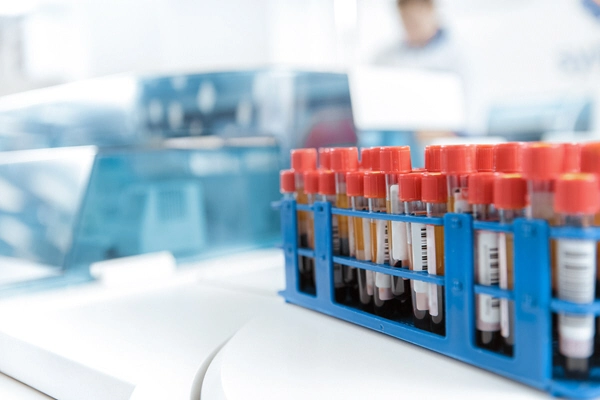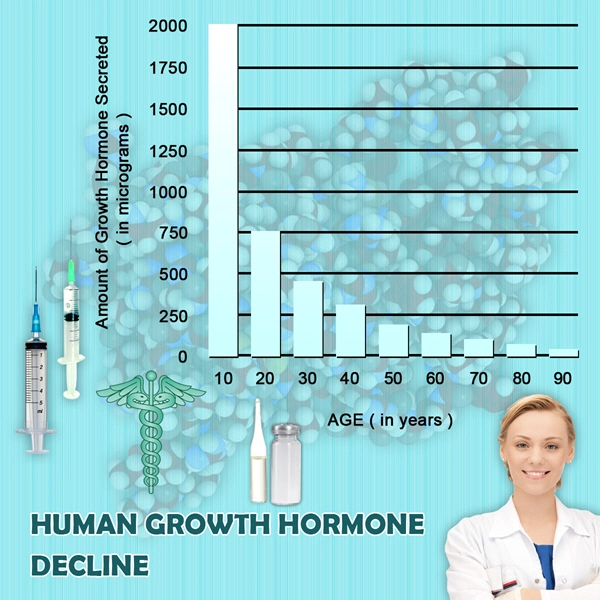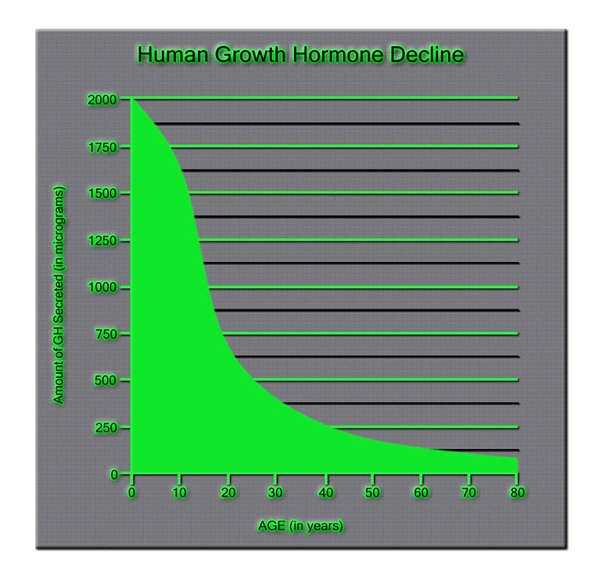Introduction to Premature Ejaculation
Premature ejaculation (PE) is a common sexual dysfunction among American males, characterized by an inability to delay ejaculation during sexual intercourse, resulting in dissatisfaction or distress. This condition can significantly impact the quality of life and intimate relationships. Understanding the underlying causes and exploring effective treatment options are crucial steps toward managing this condition.
Causes and Diagnosis of Premature Ejaculation
The etiology of premature ejaculation is multifaceted, involving psychological, biological, and environmental factors. Psychological causes may include anxiety, stress, or early sexual experiences that set a pattern for rapid ejaculation. Biologically, genetic predisposition, hormonal imbalances, or abnormal levels of neurotransmitters may contribute to PE. Environmental factors such as relationship issues or cultural attitudes toward sex can also play a role.
Diagnosis typically involves a thorough medical history and physical examination to rule out underlying health conditions. The International Society for Sexual Medicine defines PE as ejaculation that always or nearly always occurs prior to or within about one minute of vaginal penetration, with an inability to delay ejaculation on all or nearly all vaginal penetrations, and negative personal consequences, such as distress, bother, frustration, and/or the avoidance of sexual intimacy.
Behavioral Techniques for Managing Premature Ejaculation
Behavioral strategies are often the first line of treatment for PE. The "stop-start" technique involves stimulating the penis until the man feels he is about to ejaculate, then stopping the stimulation for about 30 seconds before resuming. The "squeeze" technique involves squeezing the tip of the penis for several seconds when ejaculation is imminent, which can help delay orgasm.
Couples therapy can also be beneficial, focusing on improving communication and reducing performance anxiety. Regular practice of these techniques can help men gain better control over their ejaculation.
Pharmacological Interventions
Several medications have been used off-label to treat PE, including selective serotonin reuptake inhibitors (SSRIs) such as sertraline and paroxetine. These drugs can increase the time to ejaculation by altering serotonin levels in the brain. Topical anesthetics, such as lidocaine or prilocaine creams, can be applied to the penis to reduce sensation and delay ejaculation.
Dapoxetine, a short-acting SSRI, is the only medication specifically approved for the treatment of PE. It is taken on an as-needed basis, typically one to three hours before sexual activity, and can significantly increase the time to ejaculation.
Emerging Therapies and Future Directions
Recent research has focused on developing new treatments for PE, including on-demand PDE5 inhibitors, which are commonly used for erectile dysfunction. These medications may help by improving blood flow and reducing performance anxiety.
Psychosexual therapy, which combines cognitive-behavioral therapy with sexual education, is also gaining recognition as an effective treatment for PE. This approach helps men address the psychological aspects of their condition while learning practical techniques to improve sexual performance.
Lifestyle Modifications and Holistic Approaches
In addition to medical and psychological treatments, lifestyle modifications can play a significant role in managing PE. Regular exercise, a healthy diet, and stress management techniques such as yoga or meditation can improve overall sexual health and well-being.
Holistic approaches, including acupuncture and herbal supplements, have been explored as complementary treatments. While the evidence for these methods is limited, some men report benefits from integrating them into their treatment regimen.
Conclusion: Empowering American Males to Address Premature Ejaculation
Premature ejaculation is a treatable condition that affects many American males. By understanding the causes and exploring a range of treatment options, men can take proactive steps toward improving their sexual health and enhancing their quality of life. Whether through behavioral techniques, pharmacological interventions, or holistic approaches, effective management of PE is within reach. Open communication with healthcare providers and partners is essential for developing a personalized treatment plan that addresses individual needs and preferences.

- Eclipsing the Quick Fade: An In-depth Analysis of Premature Ejaculation [Last Updated On: February 25th, 2025] [Originally Added On: February 25th, 2025]
- Unlocking the Secrets Of Timing: A Deep-Dive Into The Science Behind Premature Ejaculation [Last Updated On: February 26th, 2025] [Originally Added On: February 26th, 2025]
- Unraveling the Mystery: A Deep Dive into Premature Ejaculation in American Males [Last Updated On: February 27th, 2025] [Originally Added On: February 27th, 2025]
- Unraveling The Enigma: Understanding The Triggers of Premature Ejaculation [Last Updated On: February 27th, 2025] [Originally Added On: February 27th, 2025]
- Unlocking the Mind: Unraveling the Psychological Underpinnings of Premature Ejaculation [Last Updated On: February 28th, 2025] [Originally Added On: February 28th, 2025]
- Understanding and Managing Accelerated Climax: Techniques to Prolong the Intimacy [Last Updated On: February 28th, 2025] [Originally Added On: February 28th, 2025]
- Decoding the Enigma: A Comprehensive Understanding of Premature Ejaculation [Last Updated On: March 1st, 2025] [Originally Added On: March 1st, 2025]
- Mastering intimate moments: A comprehensive outlook on addressing Premature Ejaculation [Last Updated On: March 2nd, 2025] [Originally Added On: March 2nd, 2025]
- Comprehensive Overview of Premature Ejaculation: Understanding Causes, Diagnosis, and Multifaceted Treatment Approaches [Last Updated On: March 3rd, 2025] [Originally Added On: March 3rd, 2025]
- Understanding and Managing Premature Ejaculation: Impacts and Treatments [Last Updated On: March 4th, 2025] [Originally Added On: March 4th, 2025]
- Understanding Premature Ejaculation: Causes, Impact, and Treatment Strategies [Last Updated On: March 5th, 2025] [Originally Added On: March 5th, 2025]
- Understanding and Managing Delayed Ejaculation: Causes, Strategies, and Treatments [Last Updated On: March 6th, 2025] [Originally Added On: March 6th, 2025]
- Mastering the Clock: Hormonal Influences on Ejaculatory Timing and Addressing Premature Ejaculation [Last Updated On: March 6th, 2025] [Originally Added On: March 6th, 2025]
- Understanding and Overcoming Performance Anxiety in Premature Ejaculation: Strategies for Improvement [Last Updated On: March 7th, 2025] [Originally Added On: March 7th, 2025]
- Understanding Premature Ejaculation: Causes, Treatments, and Lifestyle Strategies for Men's Sexual Health [Last Updated On: March 8th, 2025] [Originally Added On: March 8th, 2025]
- Natural Remedies for Premature Ejaculation: Effective Strategies for Delaying Ejaculation and Enhancing Endurance [Last Updated On: March 9th, 2025] [Originally Added On: March 9th, 2025]
- Navigating the Quick Fix Dilemma: Assessing ED Medications for Premature Ejaculation in American Males [Last Updated On: March 14th, 2025] [Originally Added On: March 12th, 2025]
- Understanding Premature Ejaculation: Facts, Myths, and Effective Management Strategies [Last Updated On: March 13th, 2025] [Originally Added On: March 13th, 2025]
- Mastering Your Heartbeat: Techniques for American Men to Gain Control Over Rapid Heart Rhythms [Last Updated On: March 13th, 2025] [Originally Added On: March 13th, 2025]
- Enhancing Intimacy: The Role of Mindfulness in Managing Premature Ejaculation [Last Updated On: March 15th, 2025] [Originally Added On: March 15th, 2025]
- Managing Premature Ejaculation in Casual Relationships: Strategies for American Males [Last Updated On: March 17th, 2025] [Originally Added On: March 17th, 2025]
- Nervous System's Role in Ejaculation and Managing Premature Ejaculation in American Males [Last Updated On: March 17th, 2025] [Originally Added On: March 17th, 2025]
- Countdown Challenge: Exercises to Combat Premature Ejaculation in American Men [Last Updated On: March 18th, 2025] [Originally Added On: March 18th, 2025]
- Anxiety's Role in Premature Ejaculation: Causes and Management Strategies [Last Updated On: March 19th, 2025] [Originally Added On: March 19th, 2025]
- Premature Ejaculation's Broad Impact on American Men's Social and Professional Lives [Last Updated On: March 19th, 2025] [Originally Added On: March 19th, 2025]
- Effective Partner Communication Strategies for Managing Premature Ejaculation in American Males [Last Updated On: March 21st, 2025] [Originally Added On: March 21st, 2025]
- Lifestyle Strategies for American Men to Manage Premature Ejaculation Effectively [Last Updated On: March 21st, 2025] [Originally Added On: March 21st, 2025]
- Understanding and Managing Premature Ejaculation: Strategies for American Males [Last Updated On: March 21st, 2025] [Originally Added On: March 21st, 2025]
- Premature Ejaculation: Causes, Diagnosis, and Effective Treatment Strategies [Last Updated On: March 22nd, 2025] [Originally Added On: March 22nd, 2025]
- Managing Premature Ejaculation: Effective Power of Pause Techniques for American Men [Last Updated On: March 22nd, 2025] [Originally Added On: March 22nd, 2025]
- Managing Premature Ejaculation: A Patient's Journey to Recovery and Hope [Last Updated On: March 22nd, 2025] [Originally Added On: March 22nd, 2025]
- Managing Premature Ejaculation: New Research and Comprehensive Treatment Approaches [Last Updated On: March 22nd, 2025] [Originally Added On: March 22nd, 2025]
- Mastering Premature Ejaculation: Techniques, Treatments, and Lifestyle Strategies for American Males [Last Updated On: March 23rd, 2025] [Originally Added On: March 23rd, 2025]
- Managing Premature Ejaculation: Stress Reduction Techniques for American Males [Last Updated On: March 23rd, 2025] [Originally Added On: March 23rd, 2025]
- Understanding and Managing Premature Ejaculation: Physiological, Psychological, and Therapeutic Approaches [Last Updated On: March 23rd, 2025] [Originally Added On: March 23rd, 2025]
- Premature Ejaculation: Emotional, Financial Impacts and the Need for Comprehensive Support [Last Updated On: March 23rd, 2025] [Originally Added On: March 23rd, 2025]
- Effective Non-Pharmacological Strategies for Managing Premature Ejaculation in American Men [Last Updated On: March 23rd, 2025] [Originally Added On: March 23rd, 2025]
- Psychological Strategies to Manage Premature Ejaculation in American Men [Last Updated On: March 23rd, 2025] [Originally Added On: March 23rd, 2025]
- Cognitive Behavioral Therapy: A Promising Treatment for Premature Ejaculation in American Men [Last Updated On: March 24th, 2025] [Originally Added On: March 24th, 2025]
- Premature Ejaculation: Understanding, Treating, and Overcoming the Stigma in American Men [Last Updated On: March 24th, 2025] [Originally Added On: March 24th, 2025]
- Restorative Sleep Boosts Sexual Stamina, Helps Manage Premature Ejaculation in American Males [Last Updated On: March 24th, 2025] [Originally Added On: March 24th, 2025]
- Understanding and Overcoming Premature Ejaculation: A Holistic Approach for American Men [Last Updated On: March 24th, 2025] [Originally Added On: March 24th, 2025]
- Mastering Foreplay to Manage Premature Ejaculation in American Men [Last Updated On: March 24th, 2025] [Originally Added On: March 24th, 2025]
- Overcoming Premature Ejaculation: Success Stories and Effective Strategies [Last Updated On: March 24th, 2025] [Originally Added On: March 24th, 2025]
- Fitness Regimen Enhances Sexual Health, Control Over Premature Ejaculation in American Males [Last Updated On: March 24th, 2025] [Originally Added On: March 24th, 2025]
- Managing Premature Ejaculation: Causes, Strategies, and Support for American Males [Last Updated On: March 24th, 2025] [Originally Added On: March 24th, 2025]
- Effective Behavioral Techniques for Managing Premature Ejaculation in American Males [Last Updated On: March 24th, 2025] [Originally Added On: March 24th, 2025]
- Managing Premature Ejaculation: The Power of Open Communication in Couples [Last Updated On: March 25th, 2025] [Originally Added On: March 25th, 2025]
- Dietary Nutrients' Role in Managing Premature Ejaculation: A Holistic Approach [Last Updated On: March 25th, 2025] [Originally Added On: March 25th, 2025]
- Managing Premature Ejaculation: Strategies and Support for American Men [Last Updated On: March 25th, 2025] [Originally Added On: March 25th, 2025]
- Overcoming Premature Ejaculation: Enhancing Intimacy and Emotional Bonds [Last Updated On: March 25th, 2025] [Originally Added On: March 25th, 2025]
- Understanding and Managing Premature Ejaculation: Causes, Impacts, and Treatments [Last Updated On: March 25th, 2025] [Originally Added On: March 25th, 2025]
- Pause Technique: Managing Premature Ejaculation in American Males [Last Updated On: March 26th, 2025] [Originally Added On: March 26th, 2025]
- Managing Premature Ejaculation: A Holistic Approach for American Men [Last Updated On: March 26th, 2025] [Originally Added On: March 26th, 2025]
- Premature Ejaculation: Global Impact, Treatment Options, and Raising Awareness in American Men [Last Updated On: March 26th, 2025] [Originally Added On: March 26th, 2025]
- Digital Innovations for Managing Premature Ejaculation in American Men [Last Updated On: March 26th, 2025] [Originally Added On: March 26th, 2025]
- Medications Impacting Ejaculatory Speed in American Males with Premature Ejaculation [Last Updated On: March 27th, 2025] [Originally Added On: March 27th, 2025]
- Understanding Premature Ejaculation: Biology, Diagnosis, and Treatment Options [Last Updated On: March 27th, 2025] [Originally Added On: March 27th, 2025]
- Biofeedback: A Non-Invasive Solution for Premature Ejaculation in American Men [Last Updated On: March 27th, 2025] [Originally Added On: March 27th, 2025]
- Managing Premature Ejaculation: Holistic Approaches for American Men [Last Updated On: March 27th, 2025] [Originally Added On: March 27th, 2025]
- Mastering Ejaculatory Control: Understanding and Overcoming Premature Ejaculation in American Men [Last Updated On: March 27th, 2025] [Originally Added On: March 27th, 2025]
- Managing Premature Ejaculation Across Different Age Groups in American Men [Last Updated On: March 27th, 2025] [Originally Added On: March 27th, 2025]
- Herbal Remedies for Premature Ejaculation: A Holistic Approach for American Men [Last Updated On: March 28th, 2025] [Originally Added On: March 28th, 2025]
- Enhancing Sexual Stamina: Exercises and Techniques for Premature Ejaculation Management [Last Updated On: March 28th, 2025] [Originally Added On: March 28th, 2025]
- Expert Insights on Causes, Treatments, and Coping with Premature Ejaculation [Last Updated On: March 28th, 2025] [Originally Added On: March 28th, 2025]
- Couples' Collaborative Strategies for Managing Premature Ejaculation [Last Updated On: March 28th, 2025] [Originally Added On: March 28th, 2025]
- Managing Premature Ejaculation: Psychological, Biological, and Behavioral Strategies for American Men [Last Updated On: March 29th, 2025] [Originally Added On: March 29th, 2025]
- Managing Premature Ejaculation: Self-Help Resources for American Men [Last Updated On: March 29th, 2025] [Originally Added On: March 29th, 2025]
- Managing Premature Ejaculation: Strategies for American Men's Sexual Health [Last Updated On: March 30th, 2025] [Originally Added On: March 30th, 2025]
- Understanding and Treating Premature Ejaculation in American Men: Causes and Solutions [Last Updated On: March 31st, 2025] [Originally Added On: March 31st, 2025]
- Effective Treatments for Premature Ejaculation in American Males: A Comprehensive Overview [Last Updated On: April 2nd, 2025] [Originally Added On: April 2nd, 2025]
- Exploring the Interconnected Dynamics of ED and PE in American Men [Last Updated On: April 2nd, 2025] [Originally Added On: April 2nd, 2025]
- American Men's Journey to Overcome Premature Ejaculation: Strategies and Success Stories [Last Updated On: April 2nd, 2025] [Originally Added On: April 2nd, 2025]
- Mastering Controlled Breathing to Manage Premature Ejaculation in American Men [Last Updated On: April 3rd, 2025] [Originally Added On: April 3rd, 2025]
- Testosterone's Impact on Ejaculatory Control and Premature Ejaculation in American Males [Last Updated On: April 5th, 2025] [Originally Added On: April 5th, 2025]
- Premature Ejaculation and Prostate Health: Understanding Links and Managing Symptoms [Last Updated On: April 8th, 2025] [Originally Added On: April 8th, 2025]
- Understanding and Treating Premature Ejaculation: A Comprehensive Guide [Last Updated On: April 9th, 2025] [Originally Added On: April 9th, 2025]
- Emotional Well-Being's Impact on Premature Ejaculation in American Males [Last Updated On: April 10th, 2025] [Originally Added On: April 10th, 2025]
- Managing Premature Ejaculation: Causes, Techniques, and Treatments for American Men [Last Updated On: April 10th, 2025] [Originally Added On: April 10th, 2025]
- Mastering Sexual Timing: Art, Science, and Holistic Approaches to Premature Ejaculation [Last Updated On: April 10th, 2025] [Originally Added On: April 10th, 2025]



List of USA state clinics - click a flag below for blood testing clinics.
Word Count: 616



















































